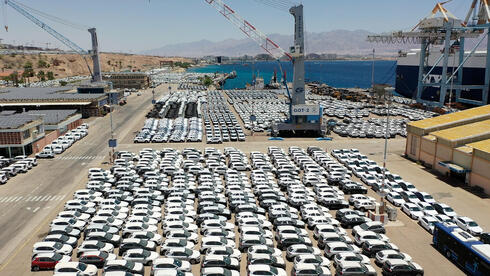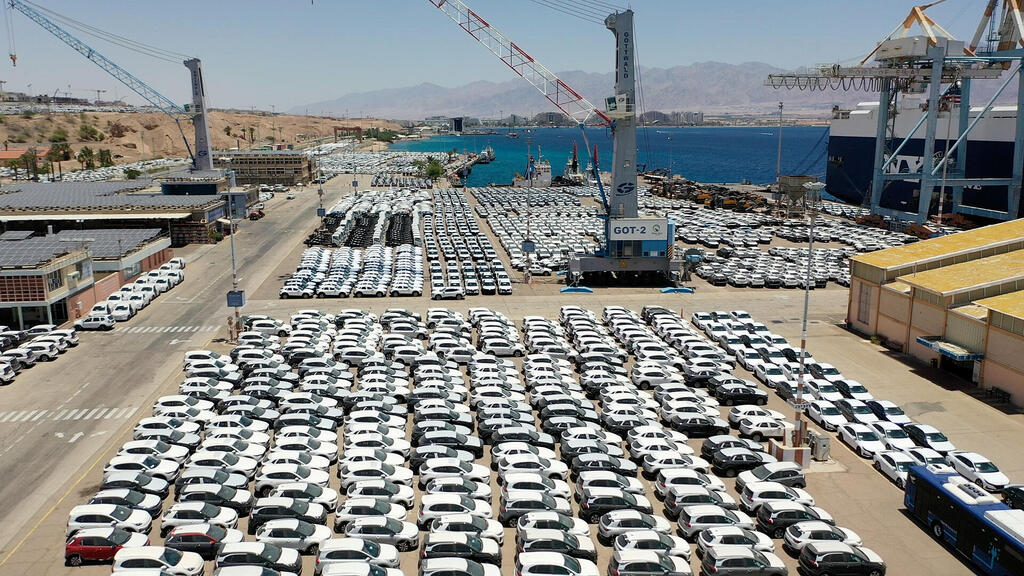
Half of Eilat Port employees face layoffs amid Red Sea shipping crisis
The port management informed employees of its intention to fire about 60 of the 120-person workforce , after Houthi attacks led to a drop in the scope of the port's activity and income
Half the workers at Israel's Eilat Port are at risk of losing their jobs after the seaport took a major financial hit due to the crisis in Red Sea shipping lanes, Israel's main labor federation said on Wednesday.
Eilat sits on a northern tip of the Red Sea and was one of the first ports to be affected as shipping firms rerouted vessels to avoid attacks by Houthi militants in Yemen.
The Histadrut labor federation, the umbrella organization for hundreds of thousands of public sector workers, said port management has announced it intends to fire half of the 120 employees. The dock workers will hold a protest on Wednesday, it said.
Officials at the port did not immediately respond for comment.
Eilat, which primarily handles car imports and potash exports coming from the Dead Sea, pales in size compared to Israel's Mediterranean ports in Haifa and Ashdod, which handle nearly all the country's trade.
But Eilat, which sits adjacent to Jordan's only coastal access point at Aqaba, offers Israel a gateway to the East without the need to navigate the Suez Canal.
In December, Eilat Port's chief executive told Reuters that they saw an 85% drop in activity since Iran-backed Houthis began their attacks on ships in the Red Sea. He said at the time they may have to furlough workers should the crisis continue.
"It would have been right for the company at this time to have embraced the workers and their families, and not chose the easy way of attempting mass layoffs," said Eyal Yadin, chairman of the transportation workers union on Wednesday. "We won't be a part of this."
The Houthis have also fired drones and missiles at Israel in a campaign they say aims to support Palestinians in the Gaza war, where Hamas is also backed by Iran.
The alternative route to the Red Sea takes shipping around the southern tip of Africa, extending voyages to the Mediterranean by two to three weeks which will add extra costs down the line, Israeli officials say.
Eilat’s port was privatized in 2013 and the Nakash brothers purchased it from the state through Papo Shipping, which they own, in exchange for NIS 122 million ($33M) as part of an agreement until 2028 with an option to extend it by another decade.














